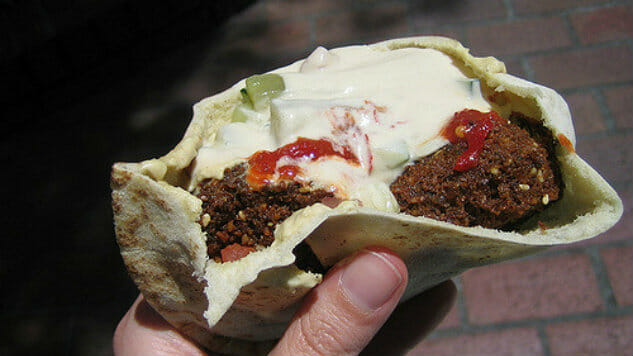3 Catering Food Names That Censor Cultural Dishes

A few weeks ago, I attended an event in New York City. It was spectacular — a catered gathering atop the Empire State Building, at night, with a phenomenal view and a group of colleagues I found inspiring. The food was great, too; mini sliders, tuna ceviche, mushroom bites, chickpea fritters … wait, what are chickpea fritters? I thought they would be some unique tiny pancakes or something made from chickpeas. But it turned out they were just falafel. Traditional, delicious falafel. But instead of giving the food its rightful name, the catering company chose something much less ethnic.
That decision is indicative of an overall trend throughout the catering world: to censor or reframe ethnic names with a more Americanized title of the food. Food trendspotter and creative strategist Kendra Valentine suggests it might stem from a need by Americans to “own” their meals.
“I think that Americans have an obsession with needing to frame things on their own terms, to come to a silent consensus that said dish has been ‘discovered’ and that ‘this is the context we shall place it in,’ and only thereafter can its original name be bestowed upon it, first by them, the tastemakers,” she said.
We can see that firsthand with the PhoGate debacle from Bon Appetit last year, when a now-removed video about eating pho — hosted by a non-Vietnamese-American chef — was rife with cultural appropriation about broth sanctity and showed a lack of knowledge about Vietnamese food traditions, including chopstick usage.
Further, Valentine noted it’s also not just overseas food traditions this happens to, but also to food traditions within our own history and society.
“The same thing goes on within the U.S.,” Valentine said. “The show A Chef’s Mind with Sean Brock personally bothered me to the core in a couple of moments as he framed some things that my ancestors cooked as firmly within his white identity. He also assumed a few things while in Africa about a process to the camera (and in Nashville) rather than asking the people themselves.”
Of course, it could just be an issue of catering companies wanting people to eat more food they don’t know, and by naming an ingredient in the title, it makes people more comfortable. But with that reasoning, even confusing American foods (like Midwestern booyah stew, for example) should receive the same treatment — and it decidedly doesn’t.